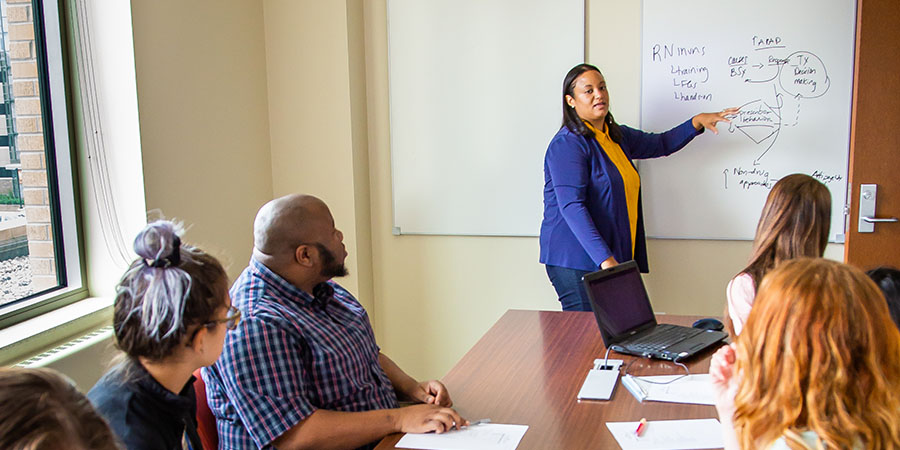Gilmore-Bykovskyi Lab
Promoting effective, meaningful, and equitable care and research for those affected by Alzheimer’s disease and related dementias.

About Our Lab
Our interdisciplinary team is committed to promoting effective, meaningful, and equitable care and research for those affected by Alzheimer’s disease and related dementias, also referred to as ADRD. We advance this mission by investigating care, utilization, and research disparities for people living with and at risk for ADRD and their caregivers.
Our lab is housed in the BerbeeWalsh Department of Emergency Medicine within the University of Wisconsin School of Medicine and Public Health.
Our Work…
Is grounded in core values of the nursing discipline to maintain, protect, and promote human dignity, health and abilities, and social justice.
Our team is composed of individuals with different perspectives, skills, and experiences who have come together to focus on this common goal in partnership with community stakeholders, people living with dementia, and family caregivers. We value the incredible contributions of research participants, community partners, and academic collaborators working with us to transform the landscape of dementia care and research.
Diversity Statement
We share UW–Madison’s commitment to creating a community where every person feels welcome, valued, and able to succeed. We view diversity as a source of strength, creativity, and innovation and value the contributions of each person with respect for the profound ways their identity, culture, background, experience, status, abilities, and opinion enrich our university and community.
Beyond this, we view diversity and equitable inclusion as inextricably linked to our goals as a team and research unit and understand the critical work of disrupting cycles of structural and systemic discrimination and exclusion to achieve these goals.
Laboratory Highlights
Gilmore-Bykovskyi Team presents at the Annual Gerontological Society of America Conference
November 18, 2022 Dr. Andrea Gilmore-Bykovskyi, Alison Coulson (Research Specialist), and collaborators Dr. Kyungmin Kim, Dr. Jeanne Teresi, Dr. Basil Eldadah presented an oral symposium at the 2022 Annual Gerontological Society of America (GSA) Conference. The title of the symposium was Lucidity...
Dr. Gilmore-Bykovskyi receives sub-award for the I-CARE 2 RCT grant
October 7, 2022 Congratulations to Dr. Gilmore-Bykovskyi for receiving a sub-award for the I-CARE 2 RCT: Telehealth to Reduce Alzheimer's related Symptoms for Caregivers and Patients grant! This project aims to evaluate the effects of the Brain CareNotes telehealth app on the outcomes of caregiver...
Gilmore-Bykovskyi Lab welcomes new members
September 27, 2022 The Gilmore-Bykovskyi Lab recently welcomed new lab members: Kayla and Meghan! Kayla joined us as a research specialist to primarily support the lucidity study. Prior to joining our team, she worked as a research specialist in the UW-Madison School of Pharmacy after...
Dr. Gilmore-Bykovskyi joins the BerbeeWalsh Department of Emergency Medicine
September 27, 2022 Dr. Andrea Gilmore-Bykovskyi joined the BerbeeWalsh Department of Emergency Medicine (DEM) as Associate Vice Chair for Research and Associate Professor with Tenure. Starting July 1, 2022, Dr. Gilmore-Bykovskyi and her lab made their...
Congratulations to Dr. Quinton Cotton on his successful dissertation defense!
September 26, 2022 On August 15th, 2022, Dr. Cotton successfully defended his dissertation. We are so excited to see what he will do next!
Gilmore-Bykovskyi Lab
Feedback, questions or accessibility issues: brainhealthteam@medicine.wisc.edu

